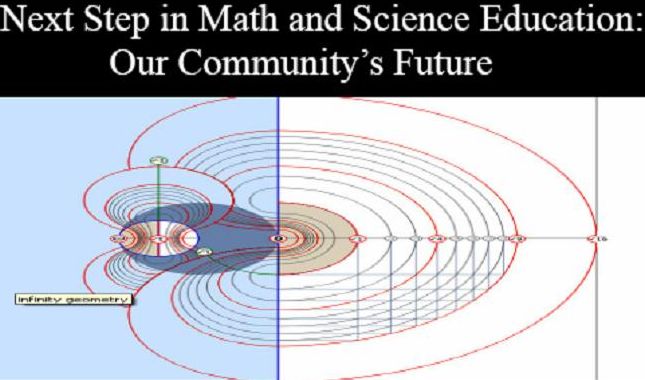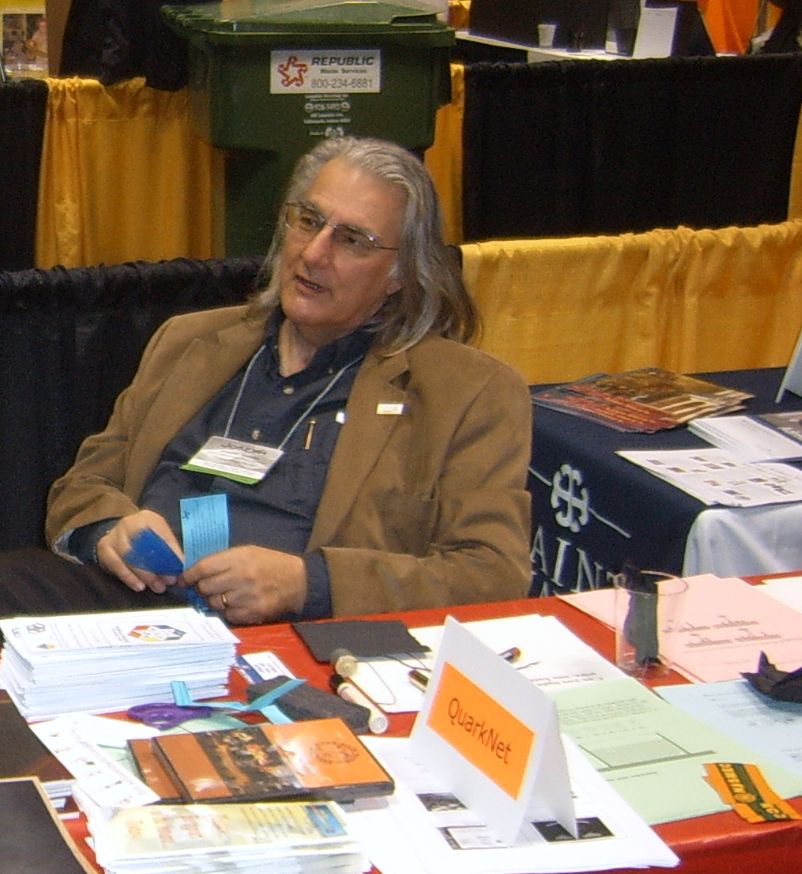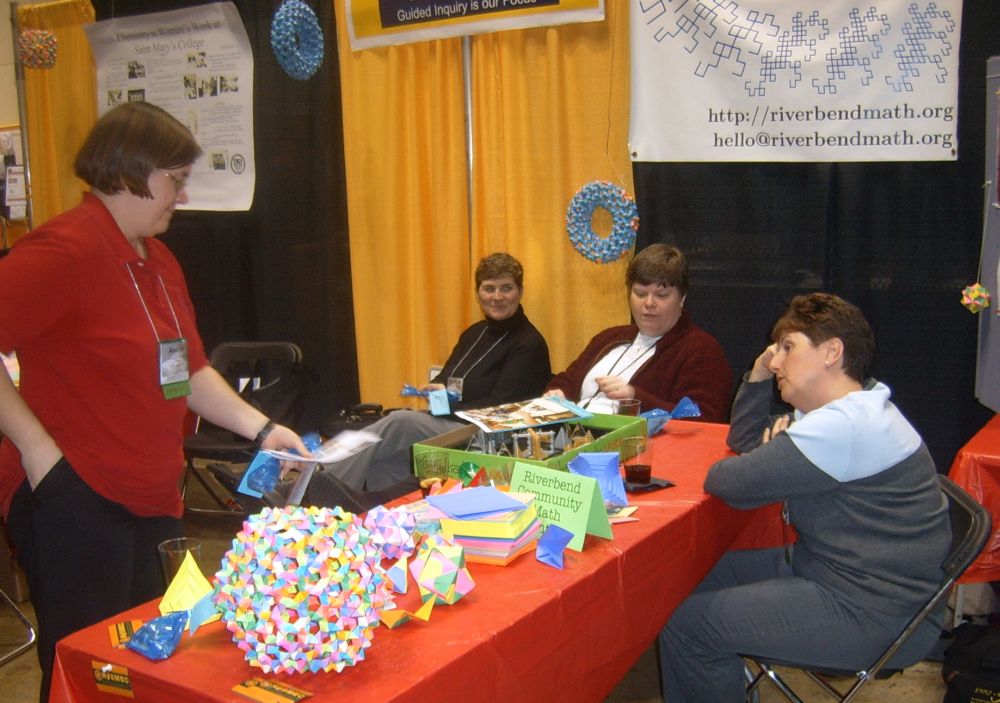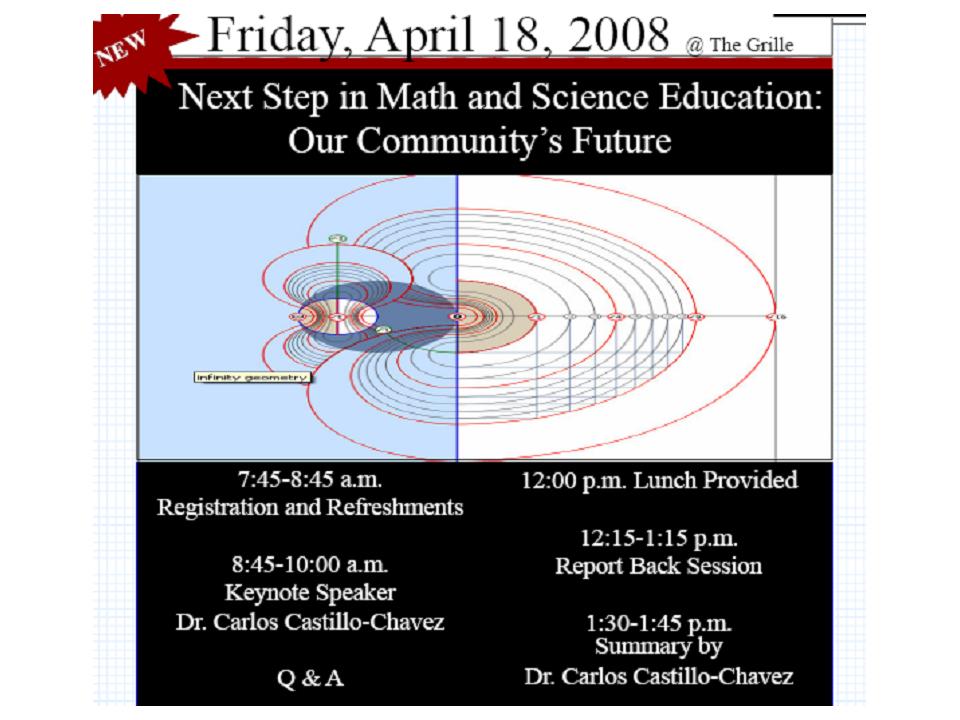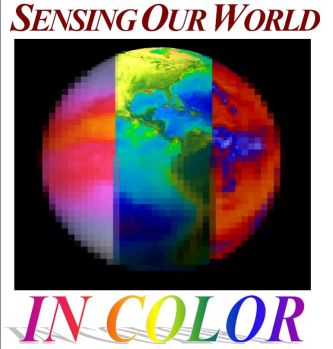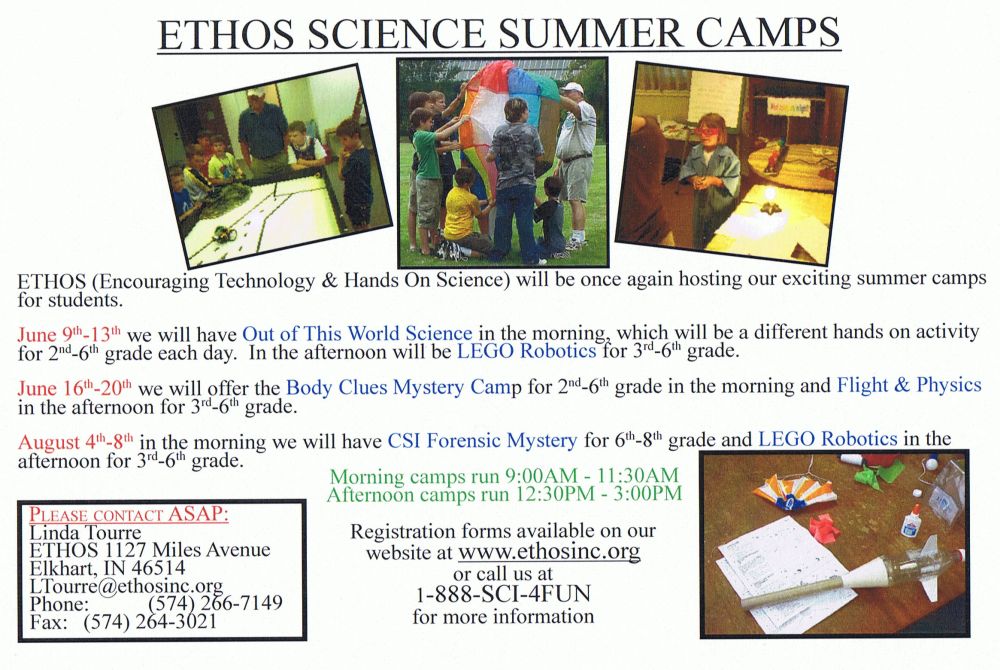 |
 |
The teachers of the MS-squared workshop of 2007
|
With the continued financial support of ISTEM and of the Siemens Foundation, the University of Notre Dame and Saint Mary's College
expect to hold several 1-week and 2-week workshops at the middle-school level (grades 5-9).
These NISMEC workshops have primary audiences for Middle School Teachers from the three local school corporations of South Bend, Mishawaka and Penn-Harris-Madison.
Each workshop will be focused on the needs for a particular school or schools, since we believe the "whole-school" concept is essential to providing the
teachers with "outside-the-classroom" support as they develop the needed Guided Inquiry methods and concepts. The workshops will be appropriate for teachers in grades 5 through 9, inclusive.
Stipends: Each workshop teacher attending will receive a stipend of $500 per week. Graduate credit from Saint Mary's or from Notre Dame is being arranged.
Place: At Notre Dame's Jordan Hall of Science or at Saint Mary's Science Hall.
Times: The deadline for signing up is 1 May, 2008; each workshop day will be from 8:30 am till 3:30 p.m, and each week will be from Monday to Friday. We give probable dates of the workshops below:
Workshop 1: 2 weeks, starting June 16 (1A), or June 23 (1B) or July 7 (1C), for Middle-School science teachers (South Bend Intermediate Centers).
These workshops will focus on the needs of the Intermediate Center teachers of the South Bend Schools.
Workshop 2: 1 week, probably starting starting June 16, for Middle-School science teachers (Mishawaka Young Middle School and Independent Schools)
Workshop 3: 2 weeks, starting July 14, for Middle-School math and science teachers (Penn-Harris-Madison Grissom Middle School)
This workshop will follow the prescription on integrating math and science content and learning found so successful in the past two years (see above): we will combine guided inquiry learning with
development of content knowledge in mathematics, particularly pre-algebra concepts, and in all the sciences appropriate to the middle-school classrooms.
Guided Inquiry learning modules will include many of the project-based learning modules presently in use at our local schools, plus the PIPS (Powerful Ideas in Physical Science)
modules, Physics by Inquiry by Lillian C. McDermott and The PER group (Wiley), and
Real Time Physics by David Sokoloff (Wiley) including the use of motion detectors.
Registration: Please note there are a limited number of spaces at these workshops (1A, 1B, 1C, 2, 3), and you will need to sign up early to secure your place - deadline - May 1, 2008
Fill in the registration form and return it Gordon Berry [hgberry@nd.edu,
or Physics Department, University of Notre Dame, Notre Dame IN 46556]
For further information, contact Gordon Berry (at ND) 574-631-4012 or by e-mail hgberry@nd.edu
or Joe Bellina (at Saint Mary's) jbellina@.edu or Kent Mikel (at Discovery Middle School) kmikel@phm.k12.in.us
or Amanda Serenevy (at Riverbend Community Math Center) viajera6@gmail.com for further information. Further details can be obtained from your science curriculum director.
|
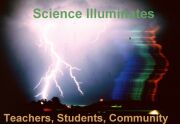




 website
website